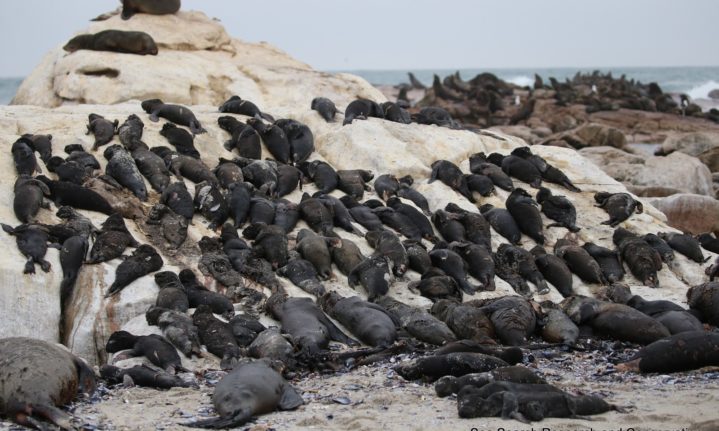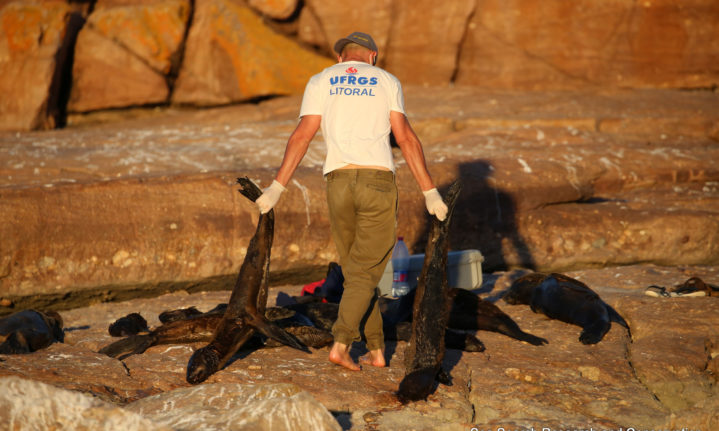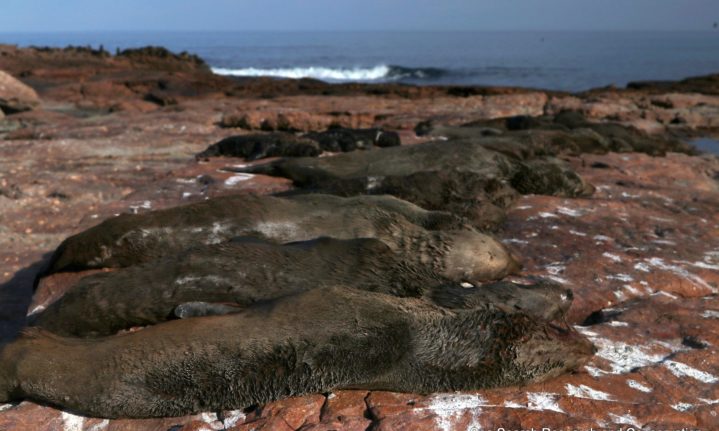A rise in Cape fur seal mortalities recorded at Shelly Beach, Elands Bay and Lambert’s Bay on South Africa’s west coast is troubling conservationists.
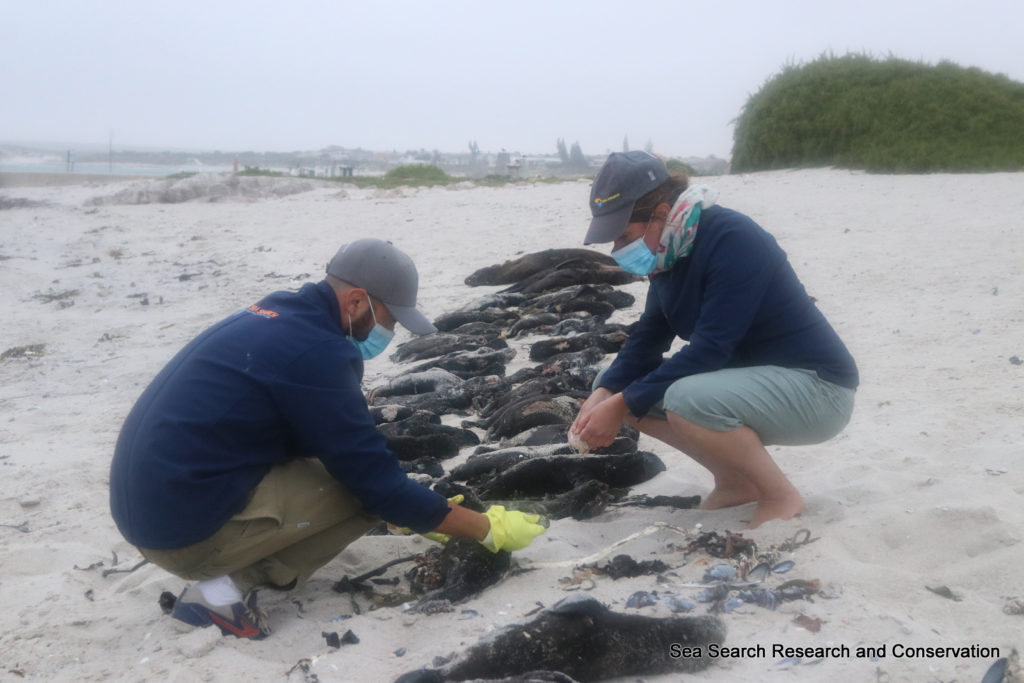
Cape fur seal carcasses collected in Lambert’s Bay. Picture: Tess Gridley
NGOs such as Sea Search are co-ordinating efforts to collect data on the Cape fur seals affected. Sea Search says they were first aware of an issue on 11th September and went to investigate on 21st Sept. “We were shocked by what we saw,” says Dr Tess Gridley, Principle Scientist for the organisation. “Since this period there have been a large number of mortalities around the West Coast in particular.”
In the build up to the annual birthing season in mid November, there is typically high activity in cape fur seal colonies with heavily pregnant females preparing to give birth and adult bulls forming harem’s. It is also at this time that yearlings are forced to fully wean. Weaker yearlings or early pups tend not to make it. “We often see high numbers of dead youngsters on our beaches,” says Gridley. “But the number of deaths is above what we expect, and our scientific instincts tell us that something unusual is going on.” Gridley goes on to explain that deaths at this time are usually yearlings forced to fend for themselves, but now there are deaths across all age groups. “My phone was pinging one morning when a contact on Shelly beach reported eight fresh carcasses. Walking on the beach every 30 seconds he was sending me a fresh image, not pups but older and mature animals. That is unusual.”
Samples have been collected and sent to the sate vet for analysis and it will be several weeks before results are available.
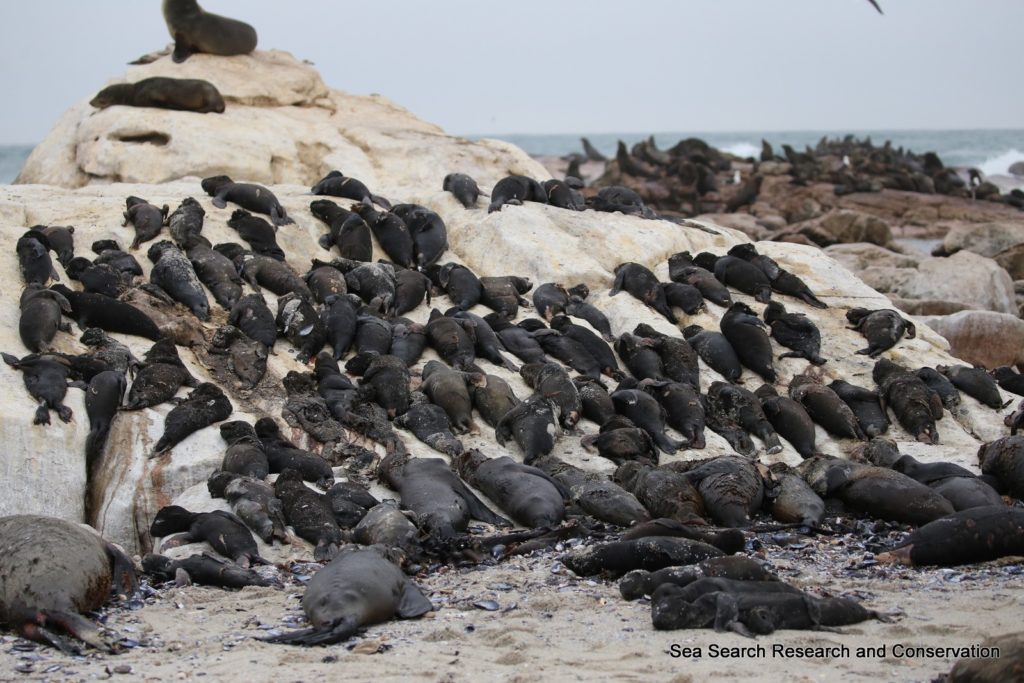
Cape fur seal carcasses in Lambert’s Bay. Image: Tess Gridley
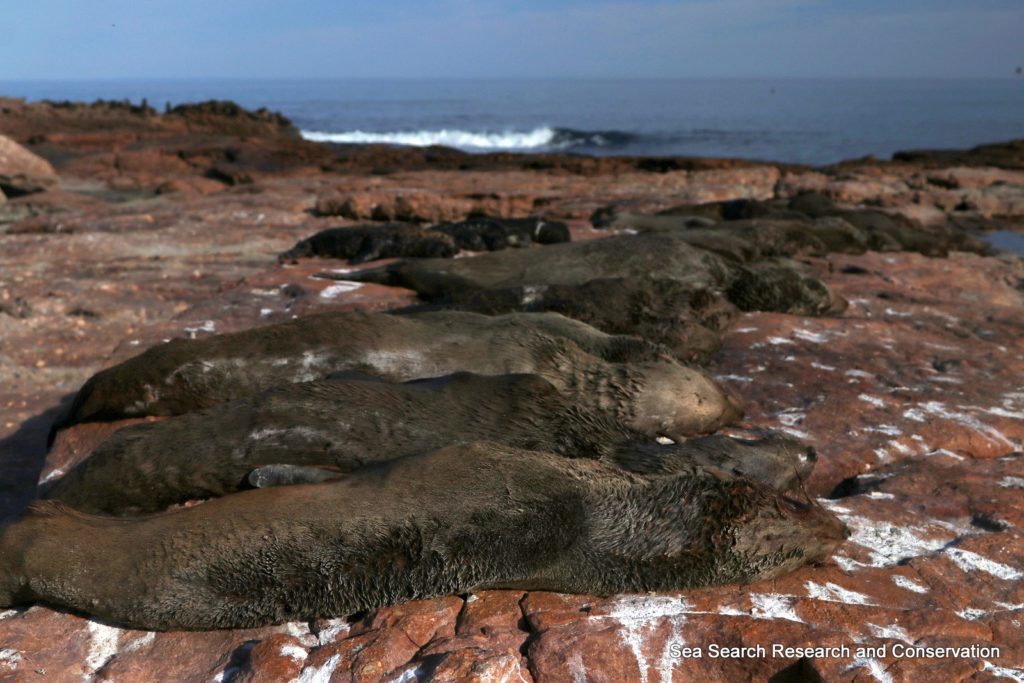
Cape fur seal carcasses in Elands Bay. Picture: Tess Gridley
Overfishing
Poor resources may well be the reason for the high mortality rate. Lack of prey due to sustained human overfishing could lead to starvation, Gridley explains. “We’ve opened them up and they’re emaciated, in a really poor condition.” Unlike many marine animals, Cape fur seals are generalists and if fish shoals run out, they will hunt other creatures such as squid, octopus and sharks. That these might also be depleted is concerning.
This event comes on the back of 2020’s ‘Abortion Storm’ in Namibia where it is estimated that more than 5 000 Cape fur seal foetuses washed up on the beach. The cause is not certain but indications are it could have been linked to malnutrition of the female seals mothers, a bacterial infection, a pollutant or a combination of these.
The 2021 mortality event is in conjunction with an outbreak of avian influenza (HPAI) which is affecting endangered Cape cormorants along the coast, but the influenza it unlikely the cause. According to the Southern African Foundation for the Conservation of Coastal Birds hundreds of birds have died from the disease in the worst hit cormorant colonies.










